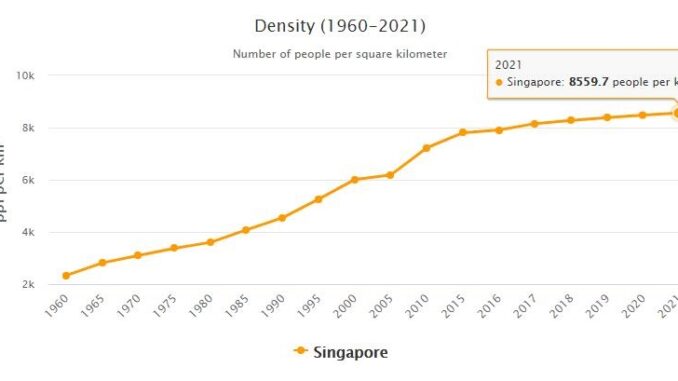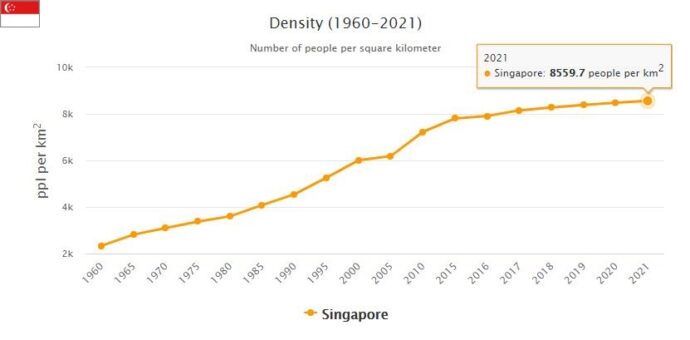
Yearbook 2013
Singapore. In response to the growing public dissatisfaction with the large number of guest workers in the country, Singapore’s Finance Minister Tharman Shanmugaratnam announced in February that measures would be taken to reduce the country’s economic dependence on manpower. However, the Minister emphasized that the number of guest workers could not be radically reduced. When the state budget for 2013/2014 was presented the same month, Shanmugaratnam said that the income gaps in the country would be reduced, among other things through a progressive tax, that funding for the health care sector would increase and that contributions to the elderly and low-income households would be increased.
According to Countryaah, big news value during the year was the suspicion that a network based in Singapore was trying to rig around 680 football matches around the world in order to then invest money on the right match result. This would include qualifying matches for the World Cup. A Singaporean businessman was suspected to be at the center of the network.
In February, four bus drivers were sentenced to prison for a few weeks for organizing an illegal two-day strike among 171 Chinese bus drivers in November 2012. The strike was organized in protest of low wages and poor working conditions. Previously, a strike had been imprisoned in December 2012 and 29 had been deported to China.
In May, an unusually large demonstration was held against Singaporean measures against the government’s plans to increase the population, primarily by bringing in more guest workers.
In June, Singapore called on neighboring Indonesia to take vigorous measures to stop the forest fires that have led to dangerously high levels of air pollution in several countries in the region, including Singapore.
During the fall, Singaporean relations with Indonesia and Malaysia were strained by media reports claiming that Singapore would have helped both the United States and Australia to spy on the two neighboring countries for many years. The data came from the American whistleblower Edward Snowden, who previously worked within the US intelligence service NSA (National Security Agency) and subsequently disclosed the agency’s extensive interception activities.
In December, a violent riot broke out among hundreds of Indian guest workers in the Little India district. The riot broke out after an Indian guest worker was killed by a privately owned bus. The circumstances of the accident were unclear. About 20 people, mostly police officers, were injured and dozens of people were arrested by police before the unrest could be stopped. Similar riots are uncommon in Singapore and Prime Minister Lee urged residents not to take revenge.
POPULATION AND ECONOMIC CONDITIONS
The population, which in 1998, according to UN estimates, amounted to 3,476,000 residents, Retains a marked ethnic inhomogeneity. The dominant group is the Chinese one (which is also the most active component in the country’s economy), followed by the Malaysian and Indian ones.
The economy has suffered in recent years a rapid pace, with such a high GDP growth (6, 9 % a year, compared with an annual increase in population of 2.2 %) to bring the tiny state in a leading position in Asia. Agriculture is insignificant, but industry, specializing in the most advanced technologies using cheap labor, has experienced tremendous expansion.
In this sector, the country has gradually abandoned the labor-intensive production phases, for activities that require specialized skills. Singapore has reached, together with Malaysia, leading positions, worldwide, in the electronics industry (especially in specialized mechanical design sectors) and in basic chemistry, using a dense network of informal relationships between technicians, companies and universities. operating in the two countries.
Financial activity also remains important, with the presence of a very active stock exchange and numerous banks. Ma Singapore, which with the Republic of Korea, Taiwan and the former British colony of Hong Kong belongs to the group of the ‘ 4 Asian tigers’ (the four countries in Asia with the greatest economic development) and which is part of ASEAN (Association of South East Asian Nations), between 1997 and 1998 it has suffered the consequences of a financial crisis caused by high foreign indebtedness and by the speculative tensions that ensued. Among the ASEAN member countries, Singapore is the most heavily dependent on foreign direct investments (attracted above all by local human capital and infrastructure resources) and on the import of raw materials and basic equipment for the production of consumer goods.
